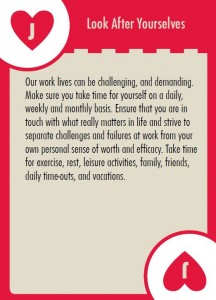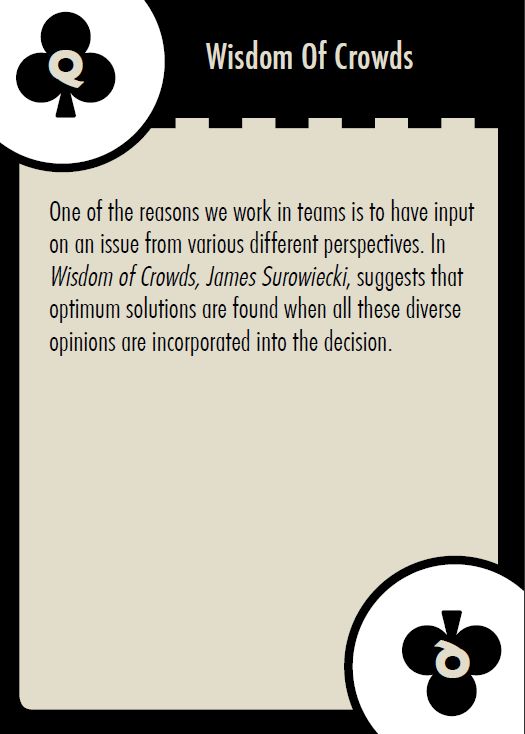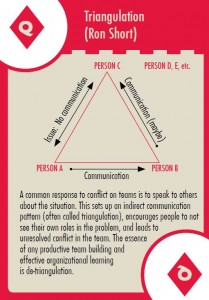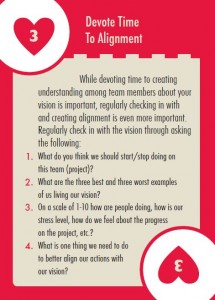Well, here you are reading this so your team (or perhaps more accurately you) are stressed. And I just know what you’re going to say … you have too much work and too little time. So if I suggest anything at all to you at this point, you might just rip my face off (you laugh but I just had that happen and not that long ago). But I will risk it anyway and suggest that at your next team meeting, you ask for 5 minutes and have everyone do the following:
- Write down all of the things that you can celebrate right now about your lives, your work and your team. And yes, do feel free to tweet, text or email each other if you simply can’t pull yourself away from your technology.
- Make a list of the things you are stressed about that you can control and ask yourselves for each one – 6 minutes from now will this be important, 6 hours from now, 6 days from now, 6 weeks from now, 6 years from now. I’d like to humbly suggest that you put all of the 6 minute, hour, and day things into perspective.
- Then, make a list of things you are stressed about that you can’t control and banish them from your heads. As someone once said (and I’m sorry I cannot remember who said it or where I read it), don’t let them live rent free in your head. It’s like giving someone you don’t trust the passwords to all of your accounts and that’s just plain crazy.
- TAKE A MINUTE, AN HOUR, OR BETTER YET A DAY OFF!!!! If your team is stressed, you have opened just one too many programs and your computer will crash (I know this because my husband watches me do this all the time and, yes, even that brand new super dooper computer will crash at some point if you just keep installing software on it.)
- Next, get reacquainted with the original passion and intent of the team. What is your team being called to do? How does that fit into the overall goals of your organization? How and where does your team need to prioritize its work? How can you reignite how you all work together?
- Now that you’ve rebooted, take a deep breath and prepare yourself for the final bit of advice …
LOOK AFTER YOURSELVES!!!! Instead of winding yourselves up like the Ever Ready Battery Bunny, try to keep our teamwork tip of the week top of mind, or better yet the wallpaper on your iPhone.

Jack of Hearts – Look After Yourselves
Our work lives can be challenging, and demanding. Make sure you take time for yourself on a daily, weekly and monthly basis. Ensure that you are in touch with what really matters in life and strive to separate challenges and failures at work from your own personal sense of worth and efficacy. Take time for exercise, rest, leisure activities, family, friends, daily time-outs, and vacations.
How is your team doing? How do you encourage each other to look after themselves?
Curious about the rest of the tips and want to know all about them now? Find out more.


